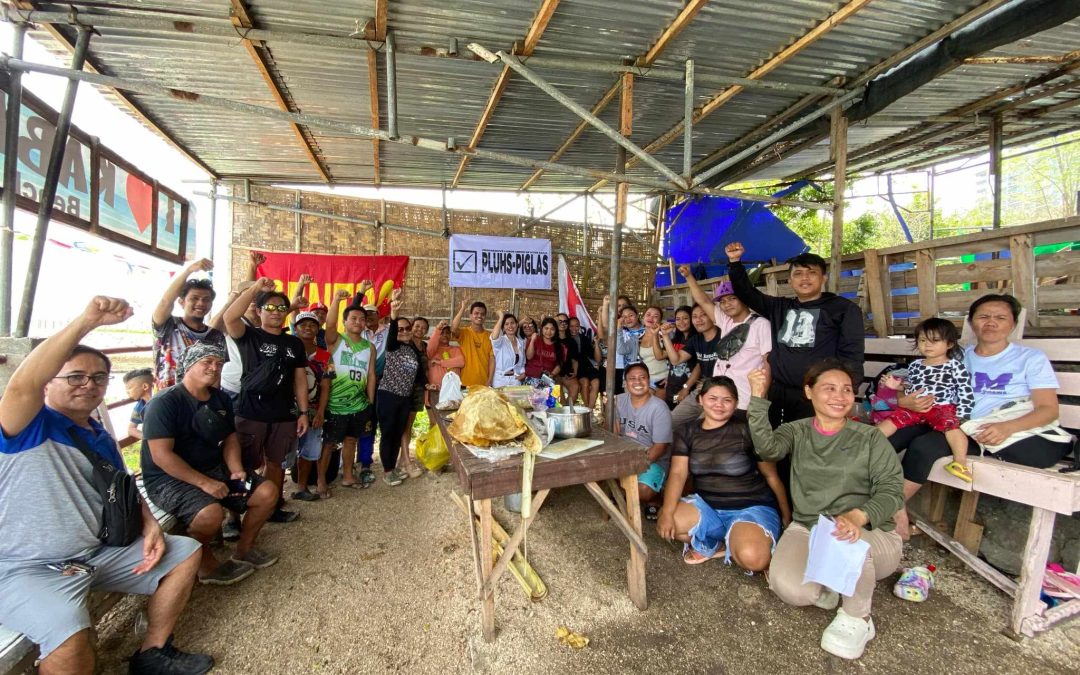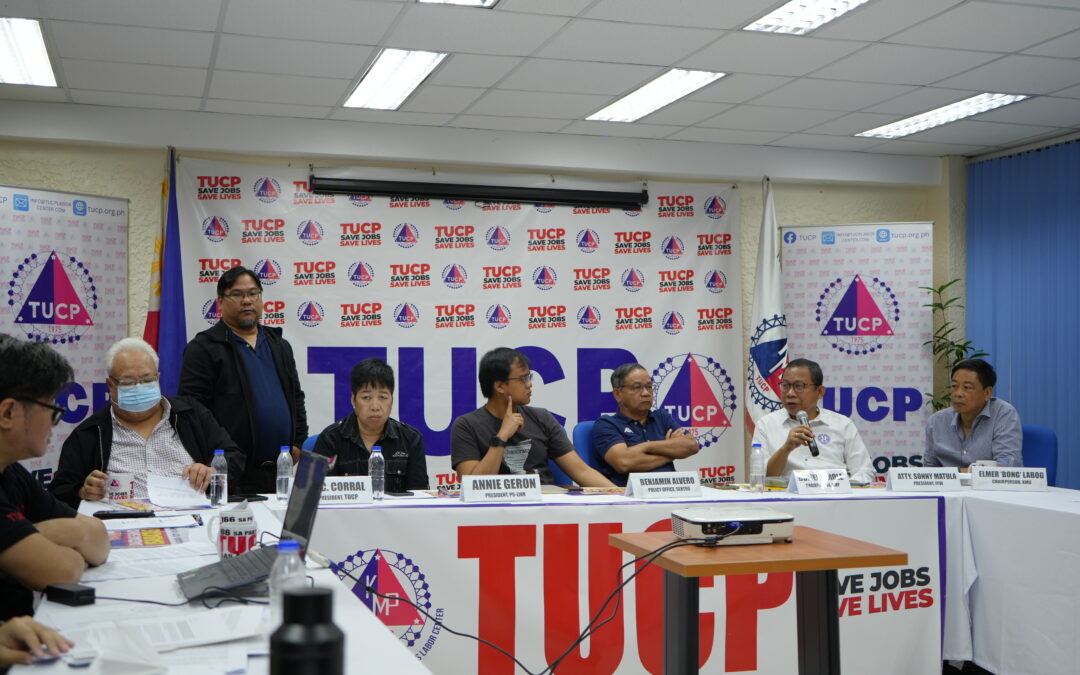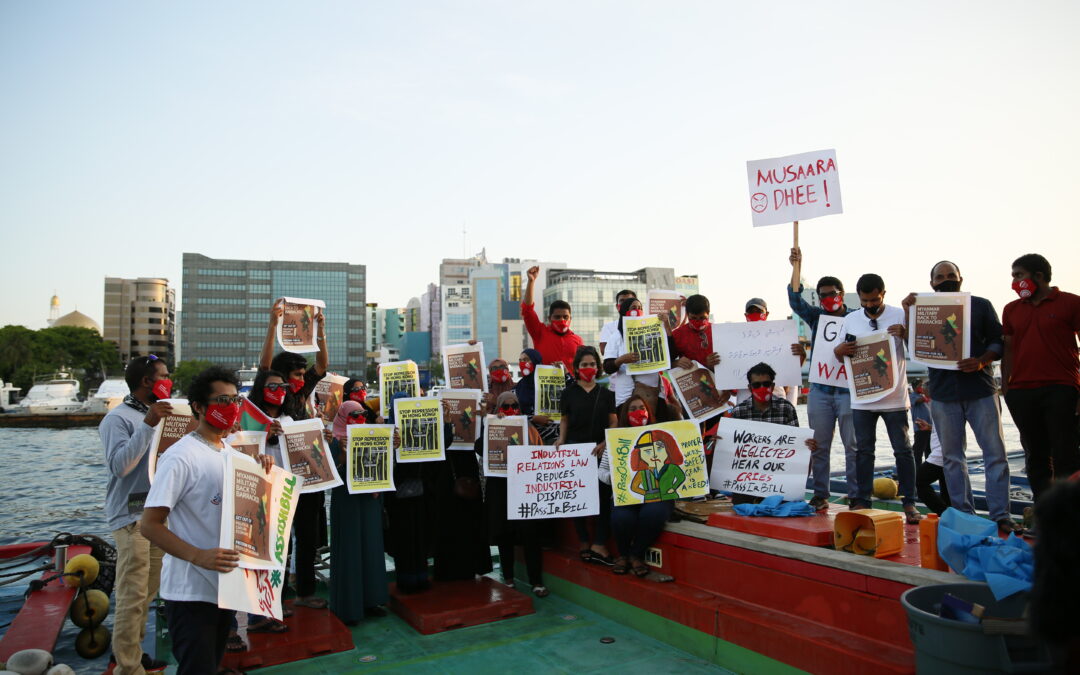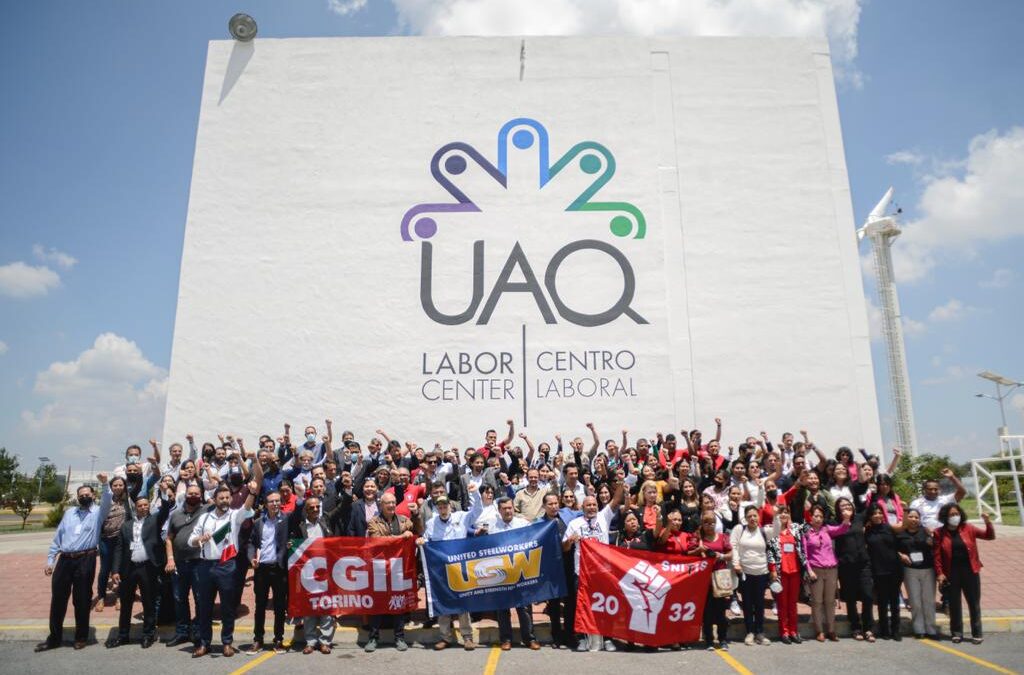
Oct 1, 2024
Organizing a union of more than 200 factory workers in an economic processing zone is a feat in itself, but doing so in just nine months amid management intimidation proves the power of solidarity.
On September 3, more than 60 percent of rank-and-file workers from Hyde Sails Cebu, Inc., a sail manufacturing company, voted union yes in their certification election, with high hopes of negotiating for better benefits and wage increases.
Lucil T. Loquinario, president of the Progressive Labor Union of Hyde Sails (PLUHS-PIGLAS), said earlier this year, “In a union, you will know the true stand and strength of a person,” adding that, “We want to dispel the myth that unions are bad or illegal.”
Fast forward to today, Loquinario noted constant education and pooling strength from each member as the main drivers of their victory. “It is better that all workers know their right to organize and know what we rightfully deserve as written in law. Since management does not let us know, it is only through this endeavor that I know the due process and defense we have as workers.”
The idea of forming a union came to Loquinario in December last year, when she was inspired by a friend who informed her of her rights as a worker. She started getting curious about the benefits her co-workers could be entitled to, along with the automatic 30-day suspension they are bound to when damages are found on manufactured sails.
Loquinario said their organizing started in January—with education seminars and friendly fireside chats with co-workers through May, when the majority of workers was already pro-union. However, word of a budding union reached management.
Loquinario detailed how management started calling them rebels, even installing a security camera in the workplace canteen a few days before the election date to allegedly intimidate workers who planned to vote union yes. She added that management appealed to the Labor department and accused the newly formed union of vote buying for passing out slices of bread to hungry voters after the election.
“It’s worse now,” she said. “Even with a five-minute lapse in break time, they sent a memo to my co-workers.”
Loquinario detailed how, after the election, management started increasing surveillance and demanding written explanations from workers who returned from break a few minutes late. “It is an unreasonable and unfair labor practice,” she said.
While these actions have caused delays in securing their collective bargaining agreement, Loquinario and the union remain hopeful, stressing the importance of having “lakas ng loob,” a Filipino adage for courage.
“We hope this has a good result where we can achieve our goals as workers in proper communication with management,” she said. “Because my co-workers are there, I have more courage to fight for what is right.”

Jul 26, 2024
More than 500 Philippine workers and trade unionists joined a march on July 22nd in Quezon City, demanding that President Ferdinand R. Marcos, Jr. declare support in his State of the Nation Address (SONA) for legislation that would further raise the minimum wage.
The Regional Tripartite Wages and Productivity Board approved a 35 PHP (approximately 0.60 US dollar) daily minimum wage hike for workers in the capital region earlier this month. This falls far short of the 150 PHP (about 3 US dollars) wage hike the National Wage Coalition has persistently called for to support workers’ economic recovery amid high inflation, poor job quality and a lack of new and decent jobs.
The Coalition, representing local workers across various industries and sectors, has remained steadfast in demanding livable wages and are advocating for multiple bills that have been introduced but still await action from the government.
The president has yet to engage in dialogue with Philippine Labor representatives and did not mention wages in his SONA.
Coalition member, Center of United and Progressive Workers (SENTRO), noted in an online statement, “[t]he [national government’s] absence of genuine effort to attain long-term solutions against rising costs and the provision of measly increases that leave workers running in place against inflation…” SENTRO added, “We deserve higher wages not simply because of our labor, but because we are human beings who have every right to live peacefully and decently.”

Mar 15, 2024
Philippine trade union leaders are calling for an across-the-board daily minimum wage increase in the private sector to alleviate the economic burden workers currently face.
House Bill No. 7871 calls for a wage hike of 150 PHP (approximately 3 US dollars). Amid high inflation, poor job quality and a lack of new and decent jobs, supporters argue that immediately passing and enacting the wage increase is critical to support workers’ economic recovery.
During a press conference in Quezon City on Thursday, Benjamin Alvero, chief policy officer of the Center of United and Progressive Workers (SENTRO) said, “This wage hike is not just a matter of economic development but also of justice. The wage hike that we currently have at the regional level is just to catch up with inflation, and that is not enough.”
“There is an urgency to pass this legislated wage hike as the first step in the right direction towards addressing the disparity between the family living wage standard and current minimum wage rates,” Philippine Labor representatives said in a joint statement.
Last month, the Philippine Senate approved a minimum wage increase–the first Congress-legislated wage hike since 1989—of 100 PHP (roughly 2 US dollars).

Jan 5, 2024
After a decade of relentless advocacy by the trade unions in the Maldives, President Mohamed Muizzu ratified on January 2 the Industrial Relations and Occupational Safety and Health bills passed by parliament with a super majority in mid December. Enactment of the law marks a monumental stride toward safeguarding worker rights and fostering industrial harmony in the Asian archipelago.
The Industrial Relations Act solidifies a structured framework for consultation and social dialogue among government entities, workers and employers. This framework stands as a beacon for the protection of worker rights, paving the way for economic and social progress, unions say. At its core lies the establishment of the National Tripartite Labor Advisory Council, ensuring the protection of collective bargaining rights and robust mechanisms for resolving industrial disputes through mediation. The Act institutionalizes key worker rights, like the rights to freedom of association and assembly, and empowers both local and migrant workers to collectively negotiate for their interests and welfare.
Simultaneously, the Occupational Safety and Health bill underscores stringent obligations for employers, emphasizing workplace safety standards, compensation frameworks and penalties for non-compliance. This legislation reflects a firm commitment to international standards and fundamental human rights, ensuring a safer and healthier work environment for all.
Congratulating the trade union movement of the Maldives on this crucial victory, Mauroof Zakir, president of Maldives Trade Union Congress (MTUC), said the passage of both bills “represents a historic victory for the working class in the Maldives. It is indeed a great achievement to empower workers and contribute to strengthening the democratic principles of the nation.”
On a similar note, Fathimath Zimna, MTUC general secretary, said, “Enactment of Industrial Relations Act and Occupational Safety and Health Act marks a significant milestone and victory that was achieved through a relentless campaign by Maldives unions. It is an important stride forward in achieving the decent work agenda in the Maldives. The journey of unions and workers will stand as a symbol of resilience and strength to working people of the world. It resembles what working people can achieve through collective voice. It is important for workers to organize into unions and raise their voices collectively to protect workers’ interests to fully entertain the rights given by the two acts.” She added that, “It is just the beginning for many more victories for the working people and their families. We would like to extend our appreciation and gratitude to all our partner organizations, including Solidarity Center and the global union federations for their support and solidarity.”

Sep 2, 2022
A new Labor Center in Mexico will advise workers about their rights and how to mobilize and organize unions and collectively bargain. The Labor Center, at the Autonomous University of Querétaro in central Mexico, is supported by the Solidarity Center and the UCLA Labor Center.
“The aim is to strengthen and promote the full recognition of labor rights, freedom of association and organization, and the democratic participation of workers through research, linkage and accompaniment,” said Labor Center Director Dr. Javier Salinas García. Salinas spoke at a recent Solidarity Center event in Mexico to announce the opening.
The Labor Center comes three years after Mexico’s government announced a series of comprehensive labor reforms to establish a democratic unionization process, address corruption in the labor adjudication system and eradicate employer protection (“charro”) unions prevalent in the country.
The Labor Center is “a way to respond to the needs of the situation,” said Beatriz García, Solidarity Center Mexico deputy program director.
“I think we all agree that Mexico is going through a historic moment. The labor reform responds to the demands that have been the objectives of the struggle of many workers for years, for decades, and reflects some positive practices of the independent unions,” she said.
The event featured a panel of independent union members and leaders who discussed the future of the labor movement in Mexico in the wake of historic labor law reforms.
Panelists explored the role that democratic and independent trade unions in promoting labor reform implementation in Mexico three years after the 2019 Labor Reform and negotiations of the United States–Mexico–Canada Agreement (UMSCA/T-MEC).
Speakers shared how they are using the tools of labor reform to organize on their worksites.
“We are the delegates, and we call our colleagues to share information about the Union League,” said Sonia Cristina García Bernal. “We have helped colleagues who were told they were going to be fired without severance pay. We have been able to get them severance pay. We have been able to get them rehired.”
“After these three years, the tool that we use the most is fast response mechanisms,” said Imelda Guadalupe Jiménez Méndez. “This has been a very important tool.”
In addition to Beatriz García, speakers included: Imelda Guadalupe Jiménez Méndez, Secretary for Political Affairs, the Miners Union (Los Mineros); Julieta Mónica Morales, General Secretary, Mexican Workers’ Union League (Liga Obrera Mexicana); Rita Guadalupe Lozano Tristán, Mexican Workers’ Union League (Liga Obrera Mexicana); Alejandra Morales, General Secretary, Independent Union of National Workers in the Automotive Industry; and Sonia Cristina García Bernal, Special Delegate, Mexican Workers’ Union League (Liga Obrera Mexicana).





